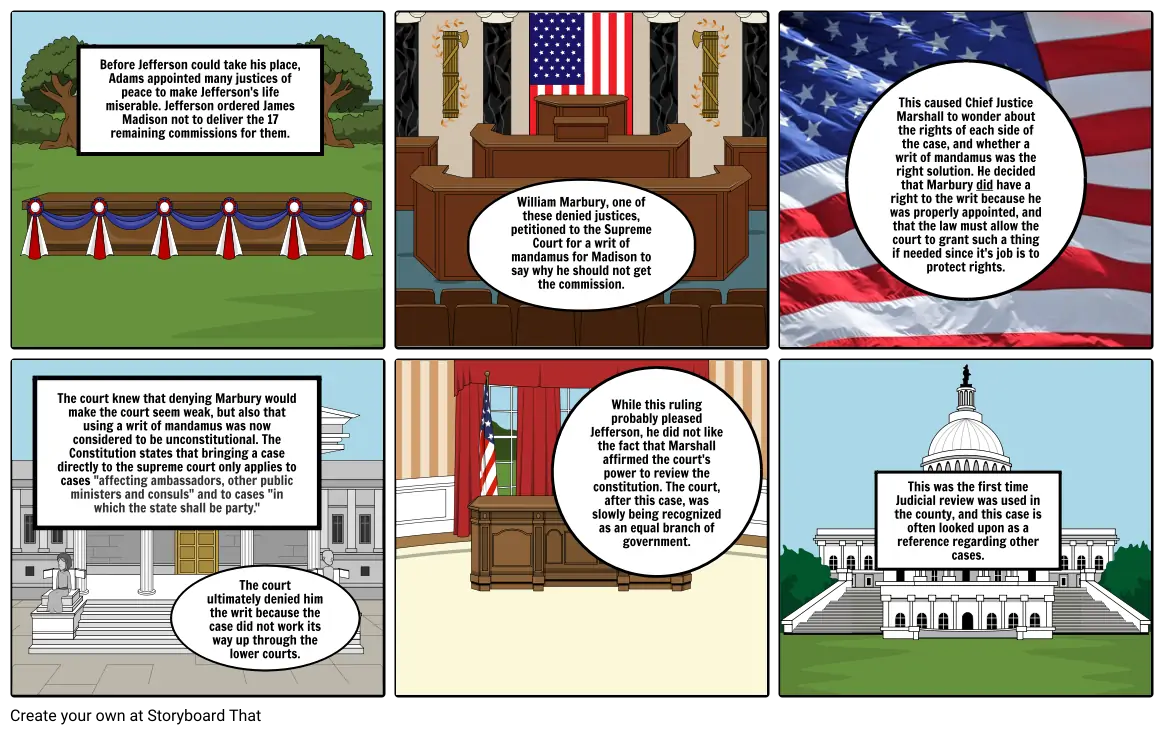Marbury vs Madison- Taryn Scott

Storyboard Text
- Before Jefferson could take his place, Adams appointed many justices of peace to make Jefferson's life miserable. Jefferson ordered James Madison not to deliver the 17 remaining commissions for them.
- William Marbury, one of these denied justices, petitioned to the Supreme Court for a writ of mandamus for Madison to say why he should not get the commission.
- This caused Chief Justice Marshall to wonder about the rights of each side of the case, and whether a writ of mandamus was the right solution. He decided that Marbury did have a right to the writ because he was properly appointed, and that the law must allow the court to grant such a thing if needed since it's job is to protect rights.
- The court knew that denying Marbury would make the court seem weak, but also that using a writ of mandamus was now considered to be unconstitutional. The Constitution states that bringing a case directly to the supreme court only applies to cases "affecting ambassadors, other public ministers and consuls" and to cases "in which the state shall be party."
- The court ultimately denied him the writ because the case did not work its way up through the lower courts.
- While this ruling probably pleased Jefferson, he did not like the fact that Marshall affirmed the court's power to review the constitution. The court, after this case, was slowly being recognized as an equal branch of government.
- This was the first time Judicial review was used in the county, and this case is often looked upon as a reference regarding other cases.
Over 30 Million Storyboards Created

